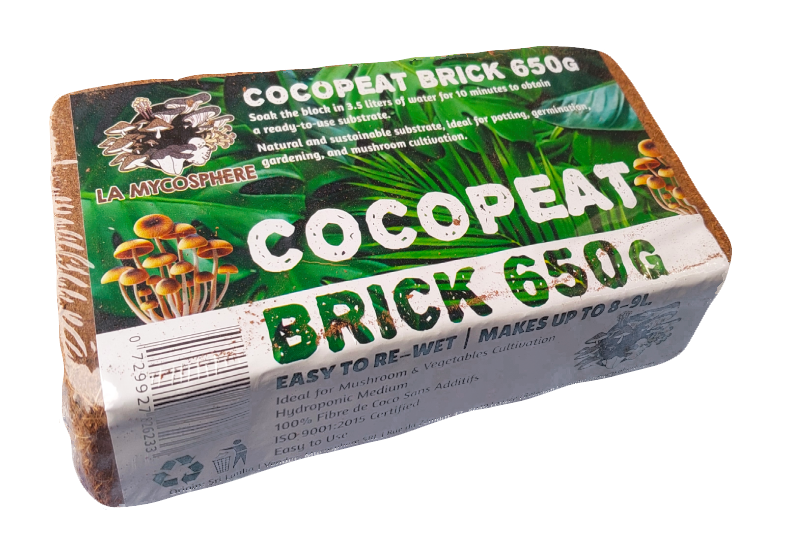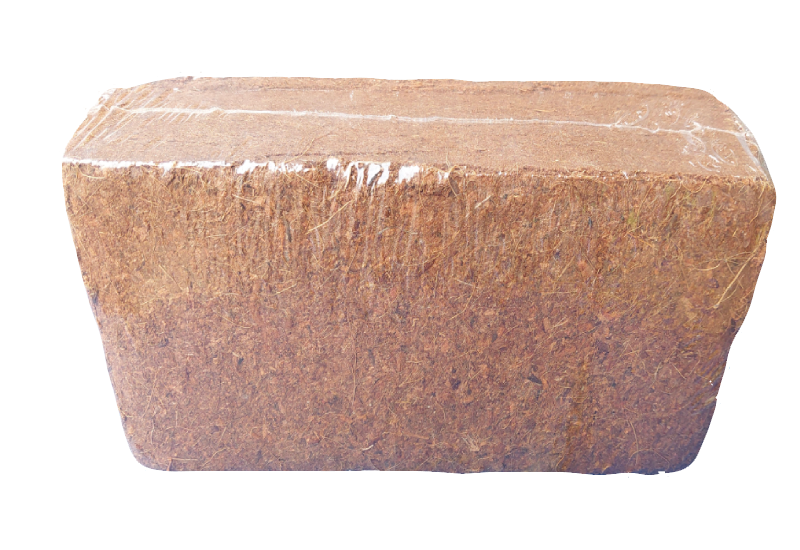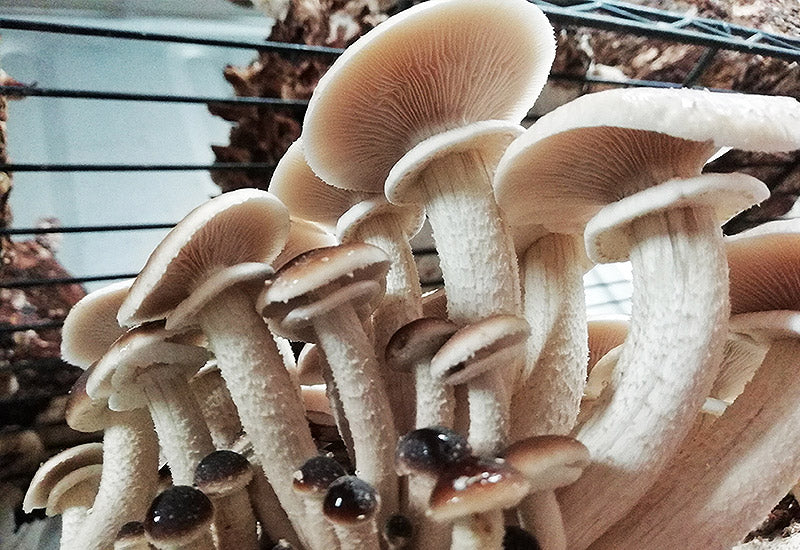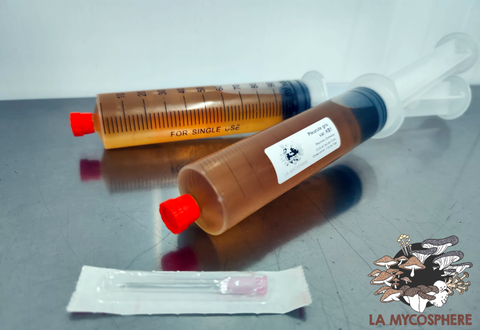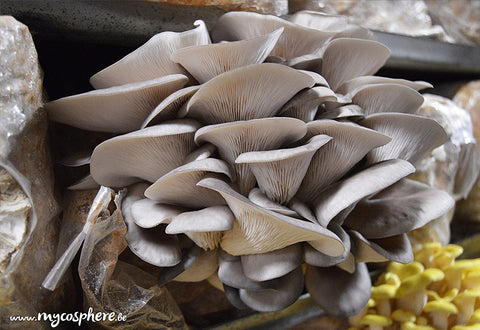Compressed Coconut Fiber Block
🌱 Compressed coconut fiber block – Ideal substrate for mushroom cultivation:
- ✔️ 100% natural product – ISO 9001:2015 certified
- 💧 Rehydrates with 3.5 L of water to produce 8 to 9 L of ready-to-use substrate
- 🍄 Perfect for preparing CVG substrate (Coco – Vermiculite – Gypsum)
- 🔥 Compatible with home pasteurization techniques (monotub, bucket tek)
Coco coir is a versatile substrate used by mushroom growers as a base for CVG substrate (Coco – Vermiculite – Gypsum), notably for the cultivation of medicinal mushrooms.
It is also used for:
-
in gardening as an alternative to peat for seedlings, cuttings, or soilless cultures
-
in transplanting exotic plants or in aquaponics (with or without amendments)
-
as natural bedding for reptiles or insects, thanks to its ability to retain moisture
Our block of coco coir (or coco peat) is made from coconut husks sourced from sustainable farming. A 100% renewable and biodegradable resource, it is guaranteed free of chemical additives. Its fibrous and uniform texture creates an ideal environment for grain spawn development.
Coconut fibers naturally contain traces of magnesium and calcium, which support optimal mushroom growth.
✔️ Superior quality – ISO 9001:2015 Certified: We select coconut fiber blocks from manufacturers certified ISO 9001:2015, ensuring strict quality control, product consistency, and a commitment to continuous improvement. This way, you benefit from a reliable substrate that meets international quality standards.
💡 Advantages of coconut fiber: Naturally resistant to mould, coco coir is an airy, light substrate, easy to store and prepare. It retains moisture optimally, promoting rapid colonization.
📦 Contents: one compressed block of ±650g producing 8 to 9 litres of substrate once rehydrated with 3.5 litres of water.
🛠️ Use
For a balanced CVG substrate, follow this recipe:
- 1 block of coco coir (650g)
- 8 cups of dry vermiculite (300g)
- 1 cup of gypsum (100g)
- 16 cups (3 to 3.5 L) of boiling water (99°C for pasteurization)
Place the ingredients in a bucket, pour the boiling water, seal tightly and let rest. You can also cover the bucket with a blanket to extend the pasteurization time. Work in a clean area. After 6 to 8 hours of cooling, stir vigorously to homogenize.
The substrate should be at "field capacity": when squeezing a handful, it should hold together and release only a few drops of water. Wash your hands well with soap before handling the substrate.

Mixing a substrate based on hydrated coco, gypsum, and grains, before sterilization.
🍄 Recommended inoculation
Use a ratio of 1:4:
→ 1 part grain spawn to 4 parts substrate.
Richer ratios (1:3 or 1:2) are possible but increase costs without significant benefit for most species.

Pioppino mushroom cultivation on CVG substrates.
Use in casing
Casing is a thin protective layer applied over a substrate fully colonized by grain spawn. Unlike the substrate, it does not provide nutrients but plays a key role in maintaining stable moisture and stimulating primordia formation (young mushroom beginnings).
Coco coir is ideal for this use: applied as a thin layer (0.5 to 1.5 cm) on a well-colonized substrate already showing primordia and/or pins, it creates a humid and airy environment that encourages more abundant and regular fruiting.
We recommend pasteurizing the coco coir before use by rehydrating it with boiling water to reduce contamination risk. Always wear protective gloves to avoid burns during this operation.
📌 Technical notes
Although coconut fiber is naturally resistant to contaminants, it remains an organic material containing nutrients. Pasteurization is therefore recommended to limit fungal or bacterial contamination risks. If you add elements rich in sugars (grains) or nitrogen (such as manure), we even recommend sterilizing the substrate in an autoclave or pressure cooker.
And perlite? It is not useful for mushroom cultivation with coco coir-based substrates. However, perlite can be used in the fruiting chamber to maintain a high humidity level (in a monotub, for example). It is sterile, neutral, and excellent at absorbing water.
🚫 This product is not intended for human consumption.
This cultivation substrate is designed exclusively for mushroom growing. It is commonly used by mushroom growers for the production of exotic and medicinal mushrooms, in domestic, educational, or research settings.
La Mycosphère products must be used only for legal purposes. La Mycosphère does not endorse the cultivation of psilocybin (Psilocybe cubensis) or hallucinogenic mushrooms ("magic mushrooms") in countries or jurisdictions where this is prohibited by law.

